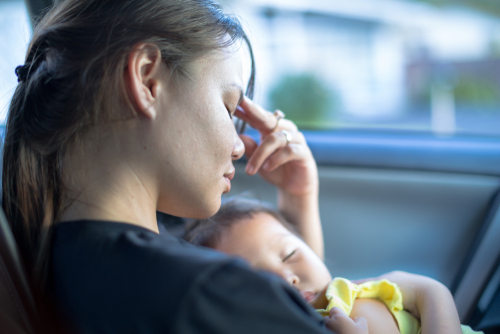Growing your family and having babies.
It can be a time of immense joy, challenges, heartbreak, and sometimes your mental health is affected. In fact, the perinatal period (pregnancy and postpartum) is the highest risk time for women to develop conditions such as anxiety or depression. And it’s not always immediately obvious that your mental health is taking a hit, as some of the changes associated with pregnancy and motherhood can mask the symptoms. For example, being really tired can be a part of having a baby, as well as a symptom of illness. Being irritable, flat, or lacking energy can be a symptom of sleep deprivation, as well as anxiety or depression. Or, being worried about your pregnancy or baby may just seem like part of motherhood (and to a degree, it can be).
So how would you know that your mental health may be affected in the perinatal period?
-
-
- You don’t feel like yourself anymore or don’t recognise yourself.
- It’s hard to get through a day- everything might feel overwhelming or too hard.
- You have distress most days, or more days than not. Whether you feel more emotional or upset, stressed in your day to day, or you’re miserable more often than not.
- You feel like having a baby has ruined your life and wish you hadn’t had one.
-
It’s really good to know that with help, things can turn around. You don’t need to stay stuck in your distress, and you are not alone.
See your doctor. See a perinatal therapist. Talk to the people in your life that you trust. Building support around you can help you shake off the darkness.
It can be scary to get started, but you and your happiness are so worth it. Mothers are important too!!

